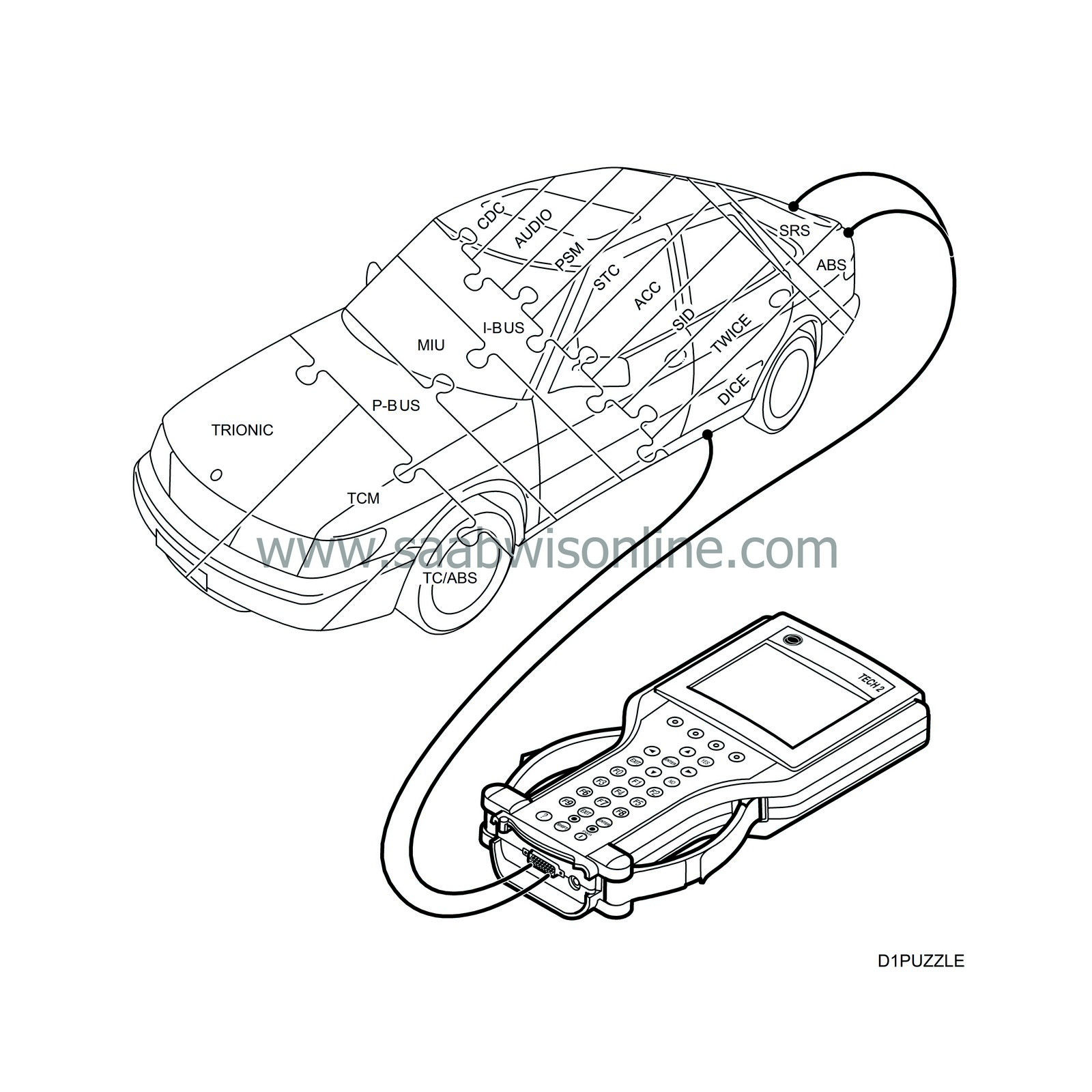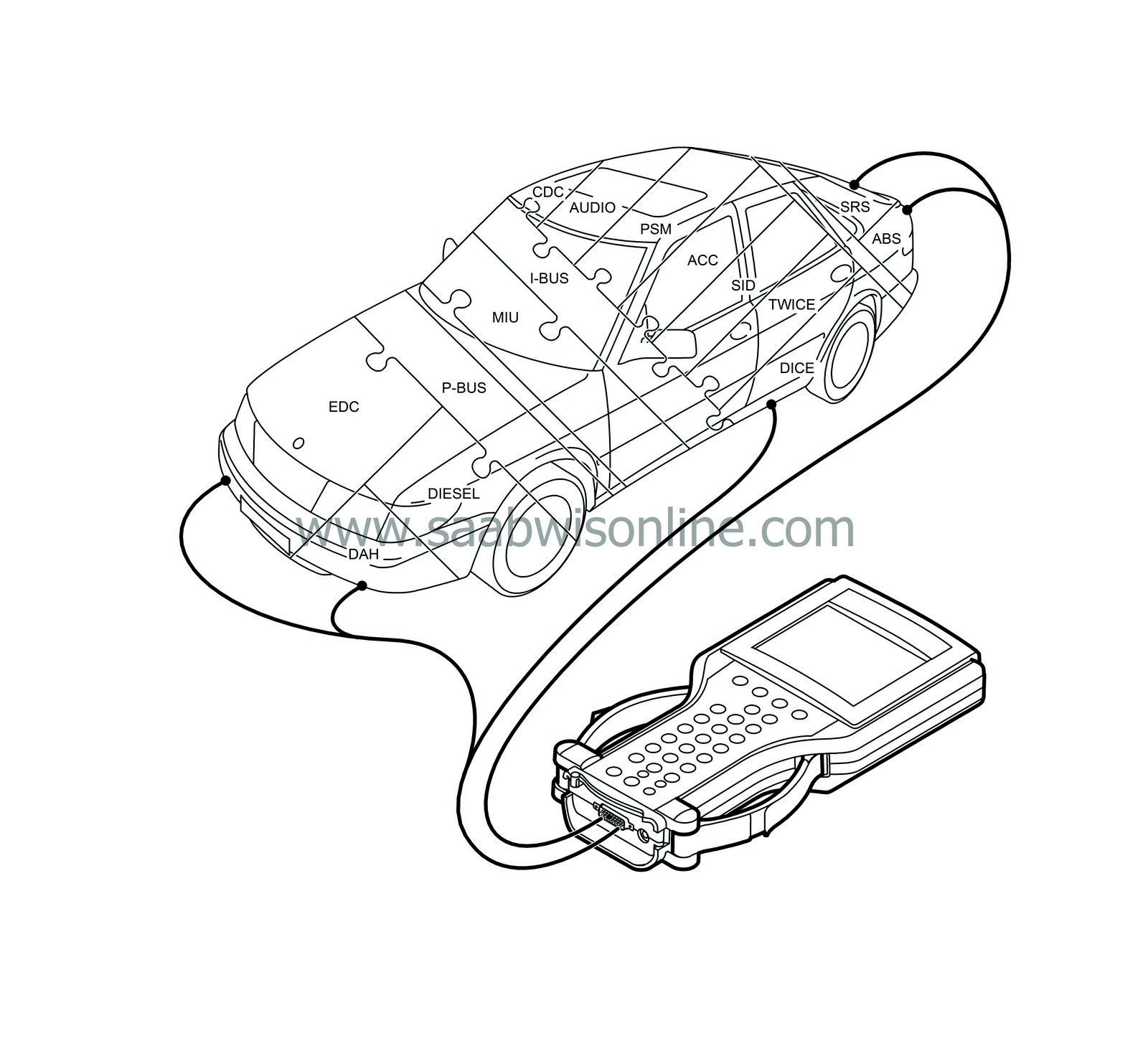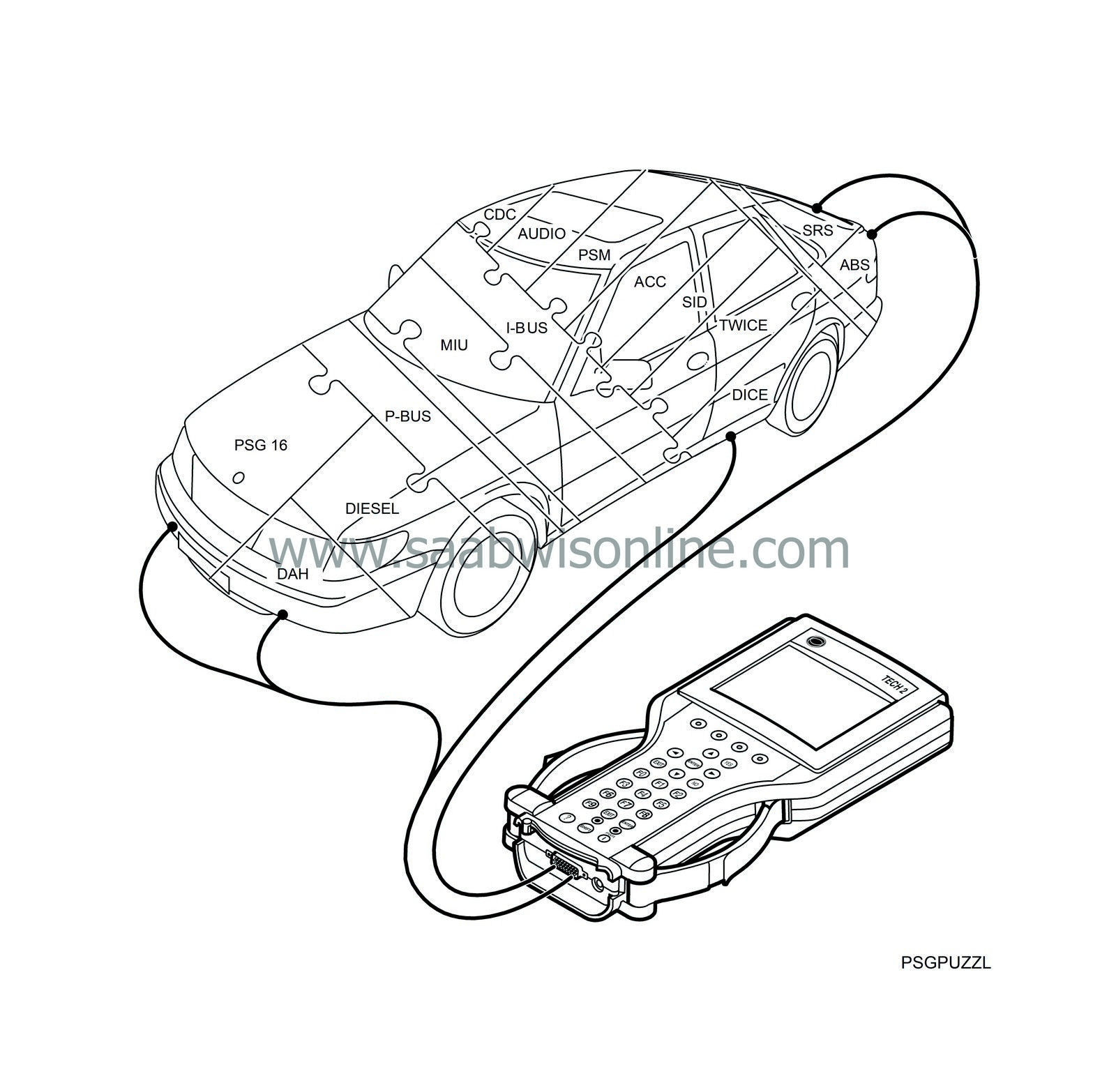Brief description of TWICE
| Brief description of TWICE |
| General |
TWICE stands for Theft Warning Integrated Central Electronics. The TWICE control module is located under the left-hand front seat, screwed to the floor and connected to the wiring harness with a 70-pin connector.
TWICE controls the following functions:
| • |
Lamp check
|
|
| • |
Seat belt warning
|
|
| • |
Heated rear seat
|
|
| • |
Electrically adjustable passenger seat
|
|
| • |
Central locking system
|
|
| • |
Immobilizer
|
|
| • |
Anti-theft alarm
|
|
| Lamp check |
TWICE checks the circuits for the rear lights and brake lights.
| • |
Rear lights
|
|
TWICE acts as a filament monitor for the rear lights. On a break in a circuit, SID can read an error message on the bus sent out by TWICE. The message activates an information text on the display or an audible warning.
TWICE checks whether voltage is present at the rear light inputs; this information is available on the bus. The information is used by DICE.
| • |
Brake lights
|
|
TWICE acts as a filament monitor for the brake lights. On a break in a circuit, SID can read an error message on the bus sent out by TWICE. The message activates an information text on the display or an audible warning.
TWICE checks whether voltage is present at the brake light inputs; this information is available on the bus. The information is used by SID.
| Seat belt warning |
The seat-belt warning lamp lights up when the ignition is turned ON unless the belt tongue is in the seat-belt buckle. The lamp goes out when the belt is buckled.
On certain markets there is also an audible warning which is activated if any passenger has not fastened their seat belt when the ignition is ON. The audible warning is active for 6 seconds when the ignition is turned ON or until all seat belts are fastened.
The passenger seat is fitted with a sensor which detects when the seat is occupied. The resistance of the sensor varies according to the load on the seat.
| Heated rear seat |
The car can be factory-fitted with heated rear seats, two heating pads are then mounted in the outer two seats.
TWICE controls the connection time for the heating as a function of the outdoor temperature.
| Electrically adjustable passenger seat |
TWICE controls a relay which is connected in series to the electrically adjustable passenger seat. When the relay is activated, the seat can be operated.
Operation is possible with the ignition ON or OFF with any of the front doors open. With the door open and the ignition OFF, the function is turned off after 20 minutes.
Operation is possible for up to 30 seconds after the driver or passenger door has been closed and also after turning off the ignition.
Operation is not possible with the ignition in the ST position.
| Central locking system |
The car is fitted with a central locking system as standard, in which TWICE controls the central locking system motors. The central locking system can be operated with a remote control unit, a key in the driver or passenger door or with a switch in the centre console.
There are three buttons on the car key: lock, unlock and unlock boot lid/tailgate.
The central locking system has three positions: UNLOCKED, LOCKED and THEFT PREVENTION LOCKED. The latter means that the car CANNOT be unlocked from inside the passenger compartment. The theft security locking function is market-dependent.
| Immobilizer |
The car is fitted as standard with a system which prevents the car being started without the correct key. For this, a transponder is incorporated in the key with a unique code for that transponder.
On the ignition switch is a receiver that receives the identification code from the transponder and passes this to TWICE. TWICE has been programmed to recognize the car's transponders and if the key in the ignition switch is correct, the car can be started.
The TWICE, MIU and engine control modules should be programmed to recognize each other. When changing one component in the immobilizer chain, the control modules must be co-programmed.
| Anti-theft alarm |
The car can be factory-fitted with an anti-theft alarm, of which there are two variants:
| • |
Variant 1 consists of; door switches, bonnet switch, luggage compartment switch and glass breakage sensor.
|
|
| • |
Variant 2; as above plus a tilt sensor, which trips the alarm if an attempt is made to steal the wheels.
|
|
The anti-theft alarm has a piezoelectric siren. The siren has an integral battery to ensure that an alarm can be given even if the power from the car's ordinary battery (car battery) is interrupted. The siren is located at the front of the left wheel housing.
The behaviour of the alarm when tripped is market-dependent and programmable.
| P-bus and I-bus |



All Saab 9-3 from M01 are equipped with the Trionic T7 engine management system. The bus system is therefore almost identical to the one fitted on the 9-5.
The bus system on diesel cars with EDC15 and diesel pump is unchanged from M98 1/2 and on cars with PSG 16 from M01 1/2.
The two diesel engine systems EDC/diesel pump and PSG 16 are not connected to the bus however. These systems require considerably faster communication to avoid any noticeable delays, e.g. when EDC or PSG requests a certain amount of fuel for injection.
Therefore, they are connected through a separate buss called the P-bus (Powertrain Bus). The P-bus has a data transfer rate ten times higher than that of the I-bus.
The P-bus is also connected to the MIU (Main Instrument Unit). The MIU ensures that the information that is available on one bus is also available on the other.


